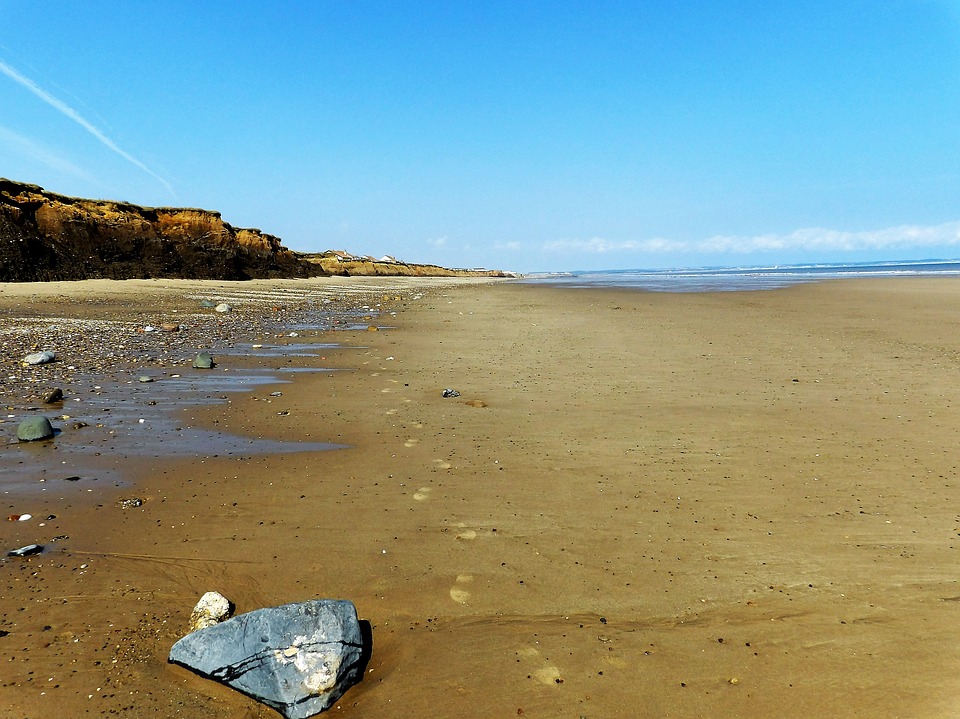- Save Lagos from Beach Erosion, Environmentalists Beg FG
Environmentalists have asked the Federal Government, to as a matter of urgency, help the Lagos State Government in protecting the shorelines of the state or risk devastating effects, which will also be felt in many other parts of the country.
According to the environmentalists, waves from the Atlantic Ocean are rapidly and at an alarming rate eating away the shorelines and have washed away about 1.5 kilometres of the Lagos shoreline since it began in the 1960s.
They raised the alarm that if urgent steps were not taken, Lagos might be under water by the year 2030 and might cease to exist by 2050 like many other cities threatened by climate change globally.
The Chairman, Nigerian Conservation Foundation, Chief Ede Dafinone, at an advocacy campaign for coastal communities along the Lekki axis organised by the foundation, stated that the history of the beach erosion began with the construction of the Apapa Port, adding that the construction of the Eko Atlantic City, helped to save the Bar Beach and parts of Victoria Island, but that the wave had moved eastwards.
The Director, Technical Programme, NCF, Dr Joseph Onoja, said in the early 2000, coastal communities such as Igbo-Efon, Okun-Ajah, Okun-Alfa and Lafiaji, which were about 13,000 metres from the Kuramo waters, had no fear of coastal erosion.
Using the Okun-Alfa community as an example, he stated that the length from a particular house and a road and the shoreline was about 109 metres as of May 2000, but by May 2013, the road had been washed away completely, adding that between December 2015 and April 2016, the distance between the community and the shoreline dropped from 47 metres to 33 metres.
Onoja said there was an urgent need for the Federal Government’s intervention in the area through construction of groins.
Dafinone noted that one of the problems was illegal mining of sand from the beaches, adding that the NCF had raised the issue with the Lagos State Government, but that the state needed the input and support of the Federal Government to protect the shoreline.
According to him, the state government has constructed 15 groins and covered up to 14 kilometres of the coastline, but stopped due to paucity of funds.
He said, “The Federal Government needs to rise to this challenge; the speed of the wave is alarming and we are talking of waves capable of wiping out communities in a matter of hours. Not only that, our groundwater, humans and the biodiversity will be affected.
“It is a potential disaster on the way and the government needs to ensure it does not happen. If 10 metres have been lost in six months, imagine what the future holds. Nature is not predictable. There are no potential solutions now except the groins.”
The environmentalists urged the Federal Government to continue with the construction of the groins from Lagos up to Escravos to address the problem.
The Chairman, Lekki Urban Forest and Animal Sanctuary Initiative, Mr Desmond Majekodunmi, noted that it remained the direct duty of the Federal Government to protect the country’s shorelines.
“The Federal Government needs to urgently restart the construction of the groins. We cannot be sitting down and waiting for the worse to happen. Once we have the groins, Lagos can have lovely beaches that can attract tourism,” he said.
Majekodunmi added that constructing the groins to Escravos remained the immediate solution, adding that there should also be basic law enforcement on sand mining.
The Director-General, NCF, Dr Muhtari Aminu-Kano, said the idea behind taking the groins to Escravos was because waves from the Niger Delta had started moving westwards as those from Lagos were moving eastwards.
“We need a proper and comprehensive assessment of our marine environment to show how far we need to take the groins,” he stated.
Aminu-Kano, who also called on the managers of the Ecological Fund to look at the issues critically with a view to solving the problem, explained that another solution to the challenge would be to go green by planting trees.

 Billionaire Watch3 weeks ago
Billionaire Watch3 weeks ago
 Startups4 weeks ago
Startups4 weeks ago
 News4 weeks ago
News4 weeks ago
 News4 weeks ago
News4 weeks ago
 Bitcoin4 weeks ago
Bitcoin4 weeks ago
 Naira4 weeks ago
Naira4 weeks ago
 Forex3 weeks ago
Forex3 weeks ago
 Treasury Bills4 weeks ago
Treasury Bills4 weeks ago

























